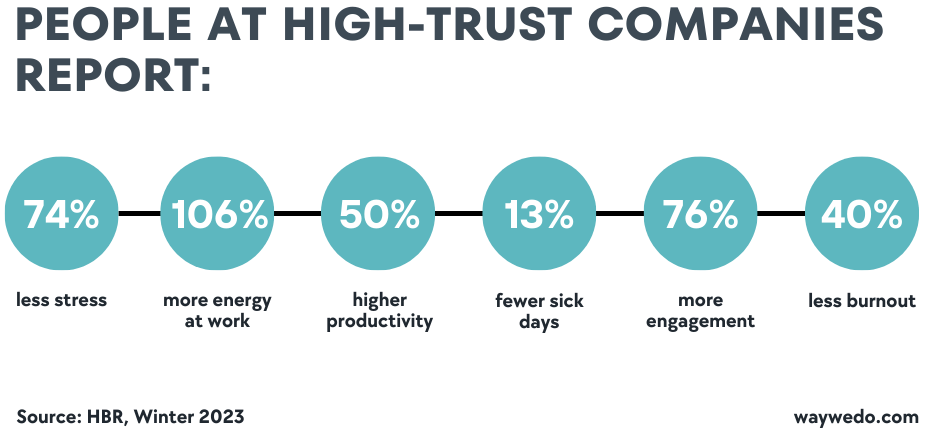In the modern workplace, trust is not just a nice-to-have; it’s a critical component of effective leadership. A study published in the Harvard Business Review (Winter 2023) highlights the profound impact of trust within organizations. Employees at high-trust companies experience 74% less stress, 106% more energy at work, 50% higher productivity, 13% fewer sick days, 76% more engagement, 29% more satisfaction with their lives, and 40% less burnout compared to those at low-trust companies.

Linda Hill and Kent Lineback, co-authors of “Being the Boss: The 3 Imperatives for Becoming a Great Leader,” argue that trust forms the bedrock of all managerial and leadership activities. Trust enables leaders to influence and be influenced, a critical dynamic in effective management. But what makes a manager truly trusted? Hill and Lineback identify two core components: competence and character. This article delves into the aspect of competence, breaking it down into three essential elements: technical knowledge, operational knowledge, and political knowledge.
1. Technical Knowledge
Technical knowledge is about understanding the “what” of your role. It involves a grasp of the work your unit performs, as well as essential management principles.
- For instance, a manager in a hospital or healthcare setting needs to understand medical terminology, patient care standards, and regulatory compliance requirements, such as those from the Health Insurance Portability and Accountability Act (HIPAA) in the U.S.
- Similarly, an IT manager should be well-versed in software development life cycles, cybersecurity best practices, and the specific technologies their team uses, such as cloud platforms or programming languages.
- Additionally, a manager in a manufacturing plant needs to understand the principles of lean manufacturing, quality control standards like ISO 9001, and the technical specifics of the manufacturing equipment.
It’s crucial for managers to possess enough technical knowledge to make informed decisions, set priorities, and offer guidance, without necessarily being the subject matter expert. This balance prevents the pitfall of micromanagement and allows for effective delegation and decision-making.
2. Operational Knowledge
Operational knowledge, or practical knowledge, concerns the “how” of your team’s work within the specific context of your company. It’s one thing to understand financial budgeting in theory; it’s another to navigate the specific budgeting process, approvals, and criteria unique to your organization.
Operational knowledge ensures that a manager can lead their team effectively, understanding the support and resources they need and setting realistic expectations. This type of knowledge is often encapsulated in an organization’s documented policies, processes, and procedures, serving as a valuable resource for current and emerging leaders.
Streamline operations with Way We Do, your solution for easy management of policies, processes, and procedures. 🚀✨
For the healthcare or hospital manager for example, Operational Knowledge may look like…
- Electronic Health Records (EHR) Systems: Understanding how to navigate and manage patient data within EHR systems, including data entry, access controls, and interoperability with other healthcare providers.
- Patient Flow Management: Knowing the processes for patient admissions, transfers, and discharges to optimize patient flow and bed occupancy rates, ensuring efficient use of resources.
- Compliance and Audit Procedures: Familiarity with the internal processes for conducting compliance audits, addressing HIPAA violations, and implementing corrective actions to maintain regulatory compliance.
3. Political Knowledge
Political knowledge is the understanding required to navigate the unique political landscape of your organization. It involves knowing how to align requests with the company’s strategic goals, understanding the decision-making process, and effectively leveraging organizational dynamics to secure resources and support for your team.
This element of competence is critical for exercising influence and avoiding the trap of becoming a powerless leader. A manager’s ability to secure what their team needs is a significant factor in earning and maintaining their trust.
Building Trust Over Time
Trust in a manager’s competence is built through consistent accomplishments over time. This includes making knowledgeable decisions, demonstrating a practical understanding of how work gets done, and securing necessary organizational resources. Here are some tips for fostering trust in your competence:
- Communicate the rationale behind your decisions and actions.
- Involve your team in management processes.
- Ask insightful questions to encourage engagement and understanding.
- Admit what you don’t know and avoid pretending to have all the answers.
- Focus on learning, fostering an environment of continuous improvement.
In essence, becoming a trusted manager is about more than just having the right skills and knowledge. It’s about applying that competence in a way that builds confidence, fosters engagement, and drives performance. By focusing on technical, operational, and political knowledge, and by communicating openly and involving your team in fair decision-making processes, you can establish a foundation of trust that leads to a more productive, less stressed, and more engaged workplace.





